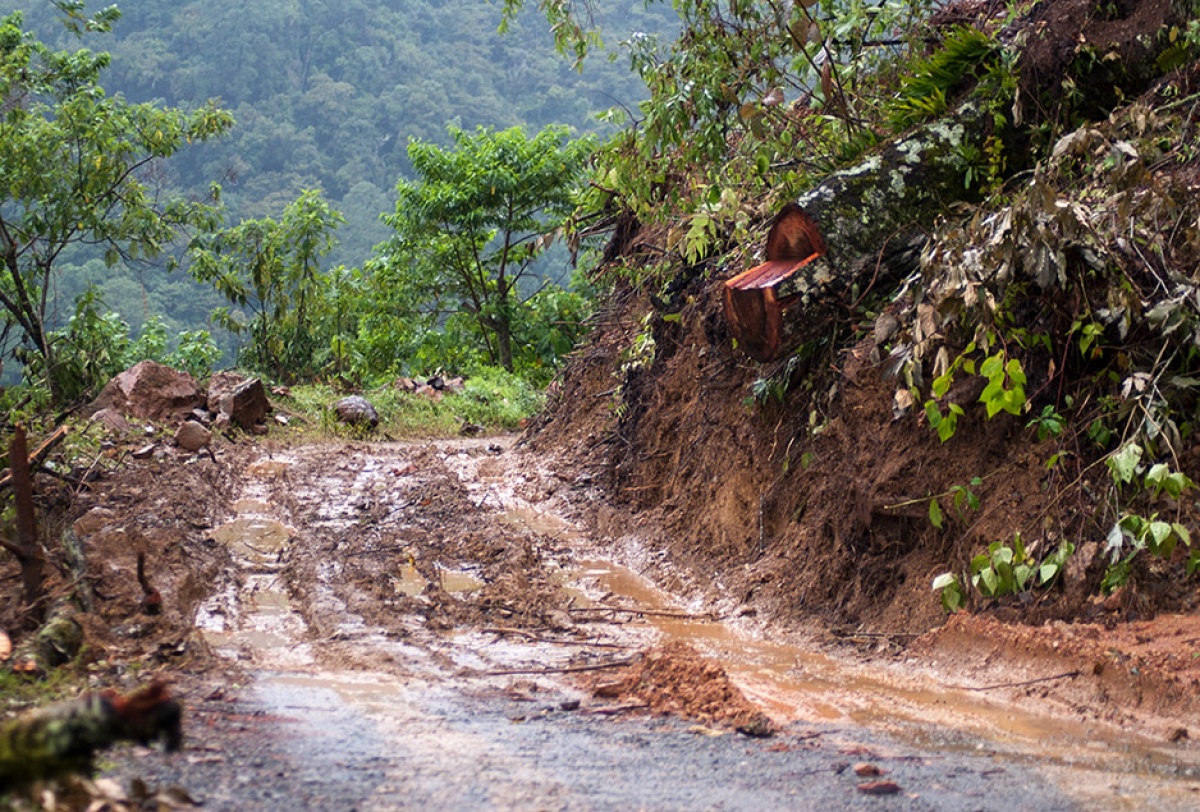Staff Share Stories After Quake in Mexico
Posted on Sep 15, 2017

One week after a monstrous 8.1-magnitude earthquake struck off the southwest coast of Mexico, Partners In Health staff said all 10 clinics they serve in rural Chiapas remained structurally sound, and that doctors, nurses, and community health workers escaped shaken, but unharmed.
Stories of individual challenges—including a woman who gave birth during the quake—poured in over the past week.
Clinicians continued providing services through the past week, while other staff assessed damage in the region of the Sierra Madre served by Compañeros En Salud, as PIH is known locally. Aftershocks rocked the region for days after the quake struck, just before midnight Sept. 7. The National Seismological Service in Mexico recorded more than 2,055 throughout the country, some registering as high as magnitude 6.1.
"The CES team and the communities where we work escaped the worst of the earthquake,” said Dr. Hugo Flores, executive director of PIH in Mexico. “And yet, while these emergencies serve as sharp reminders of the fragility of human life and that of marginalized communities, I could not emphasize enough how the impoverished people of this world live in a constant state of catastrophe.
“More than the occasional natural disaster, these communities are faced with adversity every day as they struggle to find the means to survive.”
This reality became all the more evident in recent days as PIH staff checked on colleagues, friends, and community members throughout Chiapas. Logistics coordinator Moíses Mazariegos discovered at least a dozen mudslides blocking the serpentine routes he travels regularly from Jaltenango to the various clinics. Local residents cleared most of the roads by hand, despite treacherous conditions caused by the rainy season.

In Reforma, 10 families evacuated their homes due to damage caused by the earthquake, according to Dr. Assad Daniel Saad Manzanera, a PIH doctor fulfilling his social service year there. It was unclear Friday morning how many families in other communities faced a similar situation.
Electricity is generally spotty in Laguna del Cofre, another community that PIH serves. Some residents reported that power cut off shortly before the earthquake and remained out until Wednesday. Crews have since knocked out power again to repair damage caused by the quake.
Power in Jaltenango, the base of PIH operations in Chiapas, also cut out during the quake, leaving the city’s hospital in the dark. A PIH patient from Salvador Urbina was in active labor when the lights went out in the delivery room, according to Dr. Mariana Montaño, the maternal health program coordinator. Working together, Ministry of Health clinicians and Miriam Torres, a PIH obstetrics nurse, remained by the woman’s side—risking their own safety as the building shook—and successfully delivered her baby.
“I want to congratulate our maternal clinic staff for continuing to deliver care in the middle of the crisis,” says Dr. Valeria Macías, director of secondary and tertiary care. “Without them, the life of the mother giving birth during the earthquake would have been at risk.”
Hundreds of miles away in the state capital of Tuxtla-Gutiérrez, the children’s hospital cancelled all of the week’s appointments as a cautionary measure as aftershocks continued. PIH visits this and other hospitals regularly to accompany young patients seeking specialized care. Staff scrambled in recent days to reschedule appointments for four such patients, all of whom are in stable condition.
As staff recounted the hurdles they overcame this past week, they knew the situation could have been much worse. In the neighboring state of Oaxaca, 76 people died and 11,000 homes were destroyed as a result of the powerful quake, according to The Washington Post.
The next big natural disaster in Chiapas might not be as forgiving. So PIH staff are reviewing contingency plans, evaluating ways to improve security across sites, establishing clear evacuation routes, and prepping emergency kits as precautionary measures. They don’t want to regret the disasters they could have prevented, especially when—for some of their poorest patients—every day is an unnatural disaster.
“No matter what they do, they know that something can come out of nowhere and change their present and planned future in a single instant,” said Dr. Rodrigo Bazúa, coordinator of community programs, referring to the poor communities PIH serves. “We need to acknowledge that this difference in perspectives is the product of persistent neglect throughout history. We have to start building resilient systems for everyone.”

